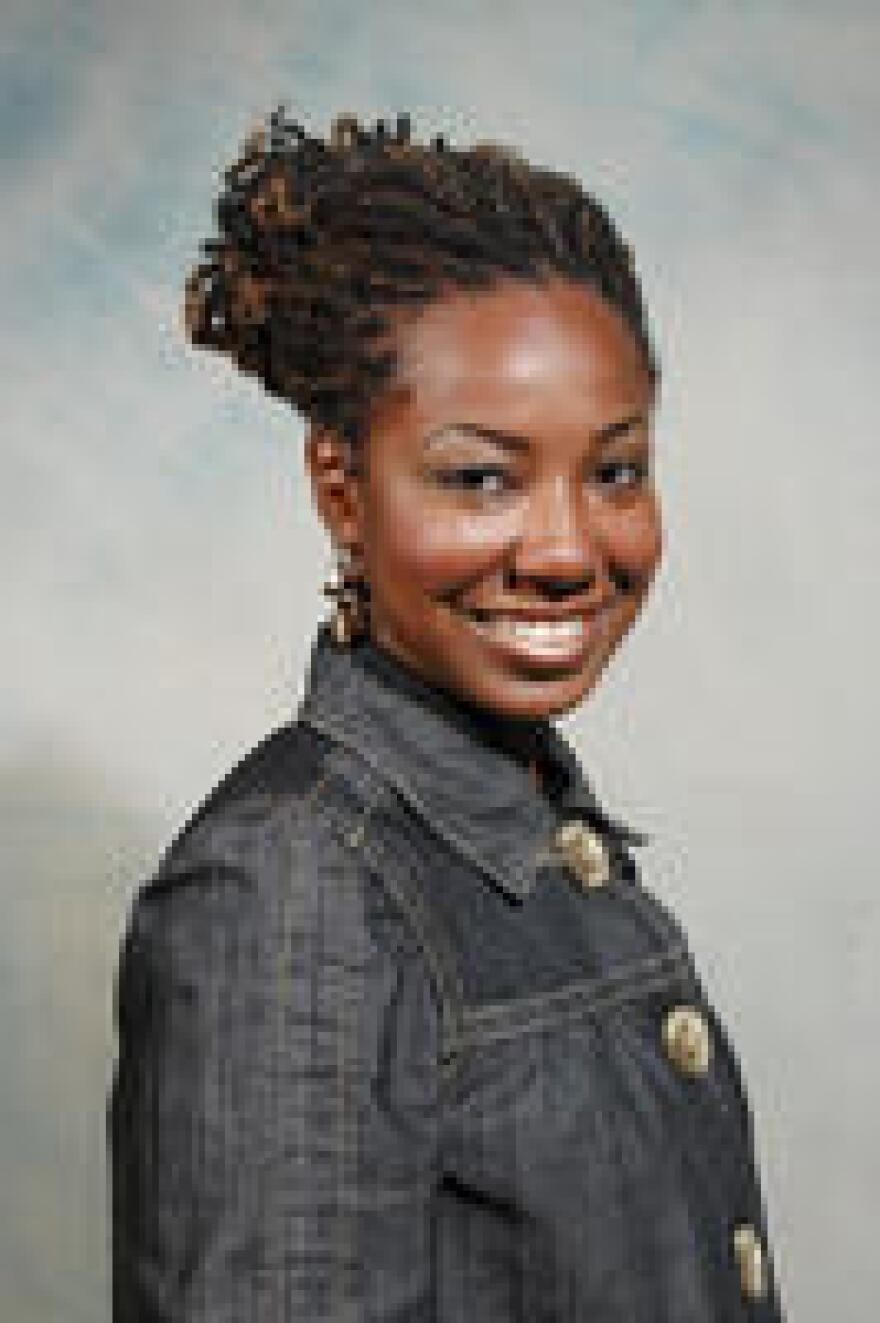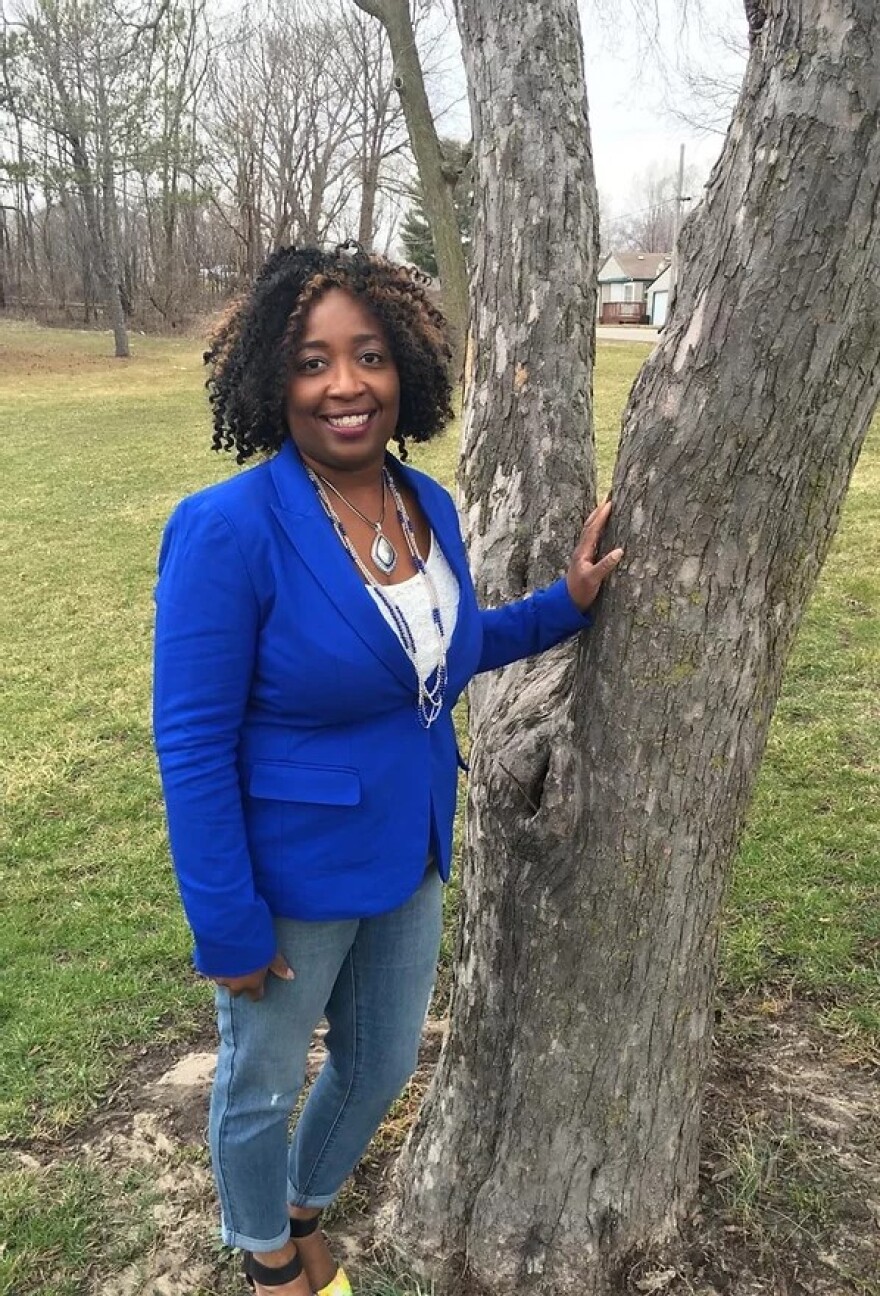Some say Blacks use their faith as therapy. About 50% more whites received mental health care than Blacks in 2018, according to a Substance Abuse and Mental Health Services Administration survey. A few Black professionals share their thoughts on this.
Mark Spates Smith is the pastor of Spates Temple in Elgin. He said therapy is a taboo subject in the Black church.
“What I think it was and is -- it is a false sense of religious piety that feels as if you go to someone that maybe you don't trust God,” he explained, “or you really don't want nobody to know your business.”
Renita Shores-Gaston, of Resilience Counseling, is a licensed clinical social worker in Rockford. She said she remembers what she heard as a child.
“And growing up, you know, like a lot of parents will say to their kids like, 'what happens here, stays here. You don't be telling people our business,’" Shores-Gaston said. "And so what is counseling [but] where you go somewhere and tell all your business?” she asked.
Spates Smith said, growing up, he heard that saying as well.
“But the problem is," he expressed, "when something's going on that is abusive, or negligent or challenging or just, you know, mentally decapitating someone does need to know. But therapy is the safe place that many of us don't know is safe.”
Salimah N. Turner is also a licensed clinical social worker. She serves the Black community in the Oak Park area. She said she’s witnessed blacks seeking therapy but she’s also seen where it was a last-ditch effort for some.
“They tried some other things, they try to self-medicate. They tried to go through the church, they've tried to talk to friends to no avail,” she said. “And so, kind of here they are on my couch, and we're working to kind of undo some of that damage that has been done.”
She said a couple of clients shared that mental health conditions were not discussed at their church. She mentioned that some were major, like bipolar disorder.

“And they were told to pray," she shared. "They were told that, you know, God would not give them any more than what they could bear."
Turner agreed that prayer should be a component, but she said other steps need to be taken.
“If you have a heart condition, you're not going to go and talk to a pastor or a podiatrist that specializes in feet,” she explained. “You are going to make your way to a cardiologist that specializes in the heart.”
Turner said mental health is vital.
“We need to put mental health on the same platform as we do any other physical concern," she said, "because mental health you know, has the capacity to knock people down. If you're not well, mentally, other things are going to be off.”
Nicholas Richard-Thompson is an organizer for the Black Alliance for Peace as well as The People’s Coalition in Aurora. He said he is currently seeking a therapist.
“Before I used to say, ‘Oh, well, I've never had like a breakdown mentally I don't need a therapist yet.’ Right," he said. "But that was silly way of thinking. You shouldn't wait until you break down to go get the therapist. You should probably do maintenance, like a car. You don't wait until you're completely out of oil, you get an oil change beforehand.”
He said therapy wasn’t the norm when he grew up.
“If it's not normalized, then you're probably going to grow up and not really think about it," he explained. "So, I had people in my family who suffer from mental illness who suffer from addiction, who probably needed a therapist."
He also suggested that cost could be one reason that some Blacks don’t go to therapy.
“I think we've seen that too. If anybody who's grown up struggling, you could think back. Like, if you ask for stuff," he said. "'oh, you don't need it,' it goes back to that. And it's really a place from insecurity because you can't afford it. And that's the reality.”
Shores-Gaston said she has more white clients than she does Black. She also believes it’s because of the cost.
“But what I've seen is just the inability in Rockford for African Americans [to get help]," she said, "because most of them, a lot of them have like Medicaid, have state insurance and there's very few of us (therapists) in Rockford that accept Medicaid or Medicare.”
Approximately 11% of African Americans are not covered by health insurance, compared with about 7% for non-Hispanic whites, according to the Kaiser Family Foundation.

Spates Smith expressed hope for new laws that could help make therapy more accessible.
“Because I think lawmakers honestly, can be just as transparent, as to normalize it, he said. "And the normalizing of it amongst lawmakers will make it mandatory. Just like we feel like it's normal to have health insurance, right? It's normal. Well, it can't be any less normal for us to have mental insurance, because a part of my health is my mind.”
Shores-Gaston said another issue is trust. She said some Blacks only feel comfortable if the therapist is Black.
“Almost like with the police -- like you don't trust them or you feel like they're going to call the authorities on you or they're going to lock you up,” she explained. “You know, a lot of people are afraid that ‘Oh, if I tell him that I'm having these thoughts of hurting myself, then they're going to automatically put me in the hospital and I can't go to the hospital.’”
Spates Smith said that people should make therapy as normal as breathing. He said he’s very transparent about it when he talks with his parishioners.
“But I tell my members," he said, "‘Listen, this is going to be great conversation. I'm going to be real with you, like the sun is bright, 'go get a therapist, you know, I'll suggest some for you.'"
And he said more Black pastors should talk openly about therapy.
“As much as I preach about faith and tithing and favor, I talk about counseling," he conveyed. "I did a message one time this year called, ‘Get Some Help.’ Because at the end of the day, everybody needs help."
Spates Smith said he goes to counseling. He suggested that he couldn’t successfully lead his church if he didn’t. He said, in his opinion, pastors probably need therapy just as much as their members.
Shores-Gaston said she does see a change coming. She said she was recently invited to speak with a couple of churches via Zoom.
“And I get leaders that have called me and asked me, ‘Will I see a client?’ You know, one of their parishioners or whatever," she shared. "And that sorts. And I’ve spoken at, you know, like women's conferences and things of that nature.”
Turner also said some churches are having the conversations about mental health.

“You know, just with the pandemic, I've seen a couple of churches that are doing Zoom meetings for their congregation," she said. "with the mental health providers that are members of the church. They're holding these forums, they're answering questions, they’re talking about mental health. So that's a start.”
Turner said Black people are going through traumatic times right now.
“You've got COVID-19, some of us, you know, African American communities, I know, my family's been impacted. It's hitting us the hardest,” she shared. “You've got the civil unrest, and you're watching this stuff looped on Facebook, and you're, you know, people that look like you -- looped on Facebook.”
Shores-Gaston said she wants to remind anyone suffering from mental health issues that they don’t have to go it alone. She said counseling can provide someone with a safe space to help them process what they are dealing with. And they shouldn’t feel bad about getting the help that they need.
- Yvonne Boose is a 2020 corps member for Report for America, an initiative of the GroundTruth Project. It's a national service program that places talented journalists in local newsrooms like WNIJ. You can learn more about Report for America at wnij.org.



